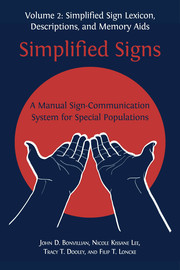
When you have a pacemaker or ICD, you may still be able do the following:ĭrive your car or travel if cleared by your doctor. These limits will only be for about 2 to 3 weeks, depending on your doctor's instructions. Your activity is usually only limited while the incision is healing. Once the device has been implanted, you should be able to do the same activities everyone else in your age group is doing.

Can I participate in regular, daily activities with a pacemaker or ICD? It is recommended that you wear a medic alert bracelet or necklace if you have a device.Īlways consult your doctor or device company if you have any questions about the use of equipment near your pacemaker or ICD. Inform your doctor that you have a pacemaker or ICD before undergoing radiation treatments.Īlways carry an ID card that states you have a pacemaker or ICD. Therapeutic radiation, such as that used for cancer treatments, can damage the circuits in your device. The risk increases with increased radiation doses. Inform your doctor if you are considering this therapy. Transcutaneous electrical nerve stimulation (TENs) to treat certain pain conditions may interfere with your pacemaker of ICD.

Ensure that your doctor is aware you have a pacemaker or ICD before scheduling this procedure. Shock wave lithotripsy, used to get rid of kidney stones, may disrupt the function of your device without appropriate preparation. Temporarily changing the mode on your pacemaker can be done noninvasively (no additional surgery is required), but should only be done by qualified medical personnel. This will be determined by your cardiologist. Some procedures require that your ICD be temporarily turned off or set to a special mode. If you are having a surgical procedure done by a surgeon or dentist, tell your surgeon or dentist that you have a pacemaker or ICD. Do not drape your headphones around your neck, put your headphones in your breast pocket, or allow a person with headphones in to press against your device. They can be worn properly in the ears and not pose this risk. Keep the headphones at least 1.2 inches or 3 centimeters (cm) away from the device. MP3 player headphones may contain a magnetic substance that could interfere with your device function when in very close contact. Avoid carrying a cell phone in your breast pocket over your pacemaker or ICD. A general guideline is to keep cell phones at least 6 inches away from your device. (less than 3 watts) are generally safe to use. transmitters, arc welders, high-tension wires, radar installations, or smelting furnaces.Ĭell phones available in the U.S. They may temporarily "confuse" your device with the magnetic fields created by these large motors.Īvoid certain high-voltage or radar machines, such as radio or T.V. Turn off large motors, such as cars or boats, when working on them. This is the use of heat in physical therapy to treat muscles. Newer pacemaker and ICD technology may be a safe option for MRI as long as monitoring and certain safety precautions are used.Īvoid diathermy. If he or she and you agree to go ahead, you should be closely monitored by a cardiologist, with a pacemaker programming device immediately available, during MRI scanning. There are usually other options to MRI for people with pacemakers, but if your doctor determines that you must get an MRI scan, discuss it with your cardiologist first. Also, the rapidly changing magnetic field within the MRI scanner can may cause heating of the pacemaker leads. These may affect the programming or function of the pacemaker. Do not lean against or stay near the system longer than needed.Īvoid magnetic resonance imaging (MRI) machines or other large magnetic fields. This is because the magnet inside the wand may temporarily change the operating mode of your device.

Also, if you are selected for a more detailed search, politely remind security not to hold the hand-held metal-detecting wand over the pacemaker for a prolonged period of time (more than a second or two). But, tell airport security that you have a pacemaker before you go through security. They will not damage the pacemaker or ICD. It is generally safe to go through airport or other security detectors. Discuss the following in detail with your doctor: The following precautions should always be considered. What precautions should I take with my pacemaker or ICD? Even so, you must take certain precautions when you have a pacemaker or ICD. In most cases, you can lead a normal life with an ICD.Īdvances in technology have reduced the chances that machines, such as microwaves, could interfere with your device. Pacemakers and ICDs generally last 5 to 7 years or longer, depending on usage and the type of device.


 0 kommentar(er)
0 kommentar(er)
